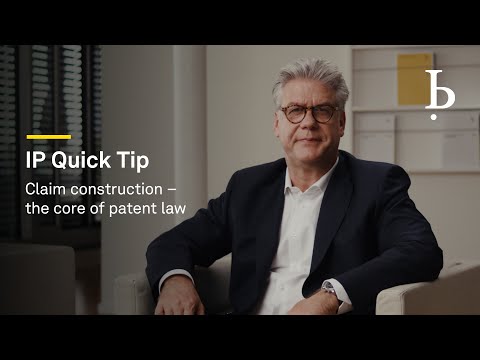
The Unified Patent Court and the Unitary Patent
In 2023, the Unified Patent Court and the Unitary Patent changed the landscape of intellectual property in Europe and beyond. With the Unified Patent Court, it is now possible to litigate one patent across 17 European countries with a single complaint. The Unitary Patent offers patent protection in all these countries without the need for national validation.
BARDEHLE PAGENBERG answers all your questions on how to obtain a Unitary Patent, how to opt-out your existing European patents, applicable transitional periods, the new opportunities for double patenting, enforcement, and defense strategies at the Unified Patent Court, costs and fees and all other relevant aspects to ensure your patent portfolio and strategy is optimized for the new system.
The Unified Patent Court and the Unitary Patent have a bearing on the following legal areas: Patent Litigation, Oppositions and Nullity, Licensing & Technology Transfer, Employee Inventions, Patent Prosecution, Antitrust law, Patent Valuation, Due Diligence and Trade Secrets.
To get informed about current insights and tips, please take a look at the articles, webinars, videos, and IP Brochures below.
Stay up to date!
- IP Report: Current info in your inbox
- Invitations to events and webinars
Would you like us to contact you directly?
See topical info on the Unitary Patent and the Unified Patent Court at a glance!
Interested in more IP Videos?
Visit our YouTube Channel with best practice tips on intellectual property.
Stay in the loop! Never miss a new UPC decision with our weekly newsletter update.
Interested in UPC statistics, trends and developments?
FAQ - General questions on the Unified Patent Court and the Unitary Patent
A Unitary Patent is a European patent for which, after grant, unitary effect has successfully been requested by the proprietor. A traditional European bundle patent granted by the EPO needs to be validated in the respective member states of the EPO and annuities have to be paid to the respective national patent offices to keep the patent in force in the respective members states. In contrast, for a Unitary Patent only a single annuity has to be paid, centrally to the EPO. That also means that the Unitary Patent cannot be partly abandoned in selected countries via non-payment of the respective national annuity.
For all European patents granted on or after the date of entry into force of the UPC Agreement (June 1, 2023), unitary effect can be requested within one month after grant.
The Unified Patent Court will not only be competent for Unitary Patents but also for all existing and future European bundle patents. By filing an opt-out, the respective European bundle patent is removed from the jurisdiction of the Unified Patent Court. It can then only be litigated on a national level, unless the opt-out is withdrawn. If an opt-out is withdrawn, the patent cannot be opted out again. Note that Unitary Patents cannot be opted out.
Opting out a patent removes it from the competence of the Unified Patent Court. Hence, it can no longer be attacked by central revocation proceedings at the Unified Patent Court. This may be a reason to file an opt-out. To bring the Unified Patent Court back into the game, e.g., to assert a patent at the Unified Patent Court after having filed an opt-out, the opt-out can be withdrawn. However, a withdrawal is no longer possible if national proceedings have been initiated, e.g., if a national nullity action has been filed. The risk of not being able to get back into the Unified Patent Court system may be a reason not to opt-out.
The language of proceedings at the UPC central division will be that in which the patent was granted (English, German, or French). At a local or regional division, the language of the proceedings may be national language of the respective countries or one of the official languages of the EPO (English, German, or French) if so designated by the respective countries of the local or regional division.
Currently, there are 17 member states: Austria, Belgium, Bulgaria, Denmark, Estonia, Finland, France, Germany, Italy, Latvia, Lithuania, Luxembourg, Malta, the Netherlands, Portugal, Slovenia, and Sweden.
The infringement of Unitary Patents can only be asserted at the Unified Patent Court. The infringement of national patents can only be asserted at the respective national courts. For European bundle patents there is a transitional period of 7 years during which infringement can be asserted both at the Unified Patent Court and at national courts in countries in which the patent is validated, unless the patent is opted out, in which case only the national courts have jurisdiction. This dual jurisdiction is not affected by the initiation of actions at the Unified Patent Court or at a national court, i.e., even if a European bundle patent is asserted against an infringer at a national court, it can later still be asserted at the Unified Patent Court and vice versa.
Patent infringement proceedings at the Unified Patent Court will have a strict and tight schedule which intends a first instance decision within 10-12 months. Any decision will cover all member states of the Unified Patent Court. The Unified Patent Court has appointed the leading patent judges in Europe, most of whom have previously been presiding judges at the leading national patent courts in the member states. This ensures highest quality at the Unified Patent Court. Also, the court fees are rather low and the recoverable costs are rather high, which makes the Unified Patent Court attractive for plaintiffs.



